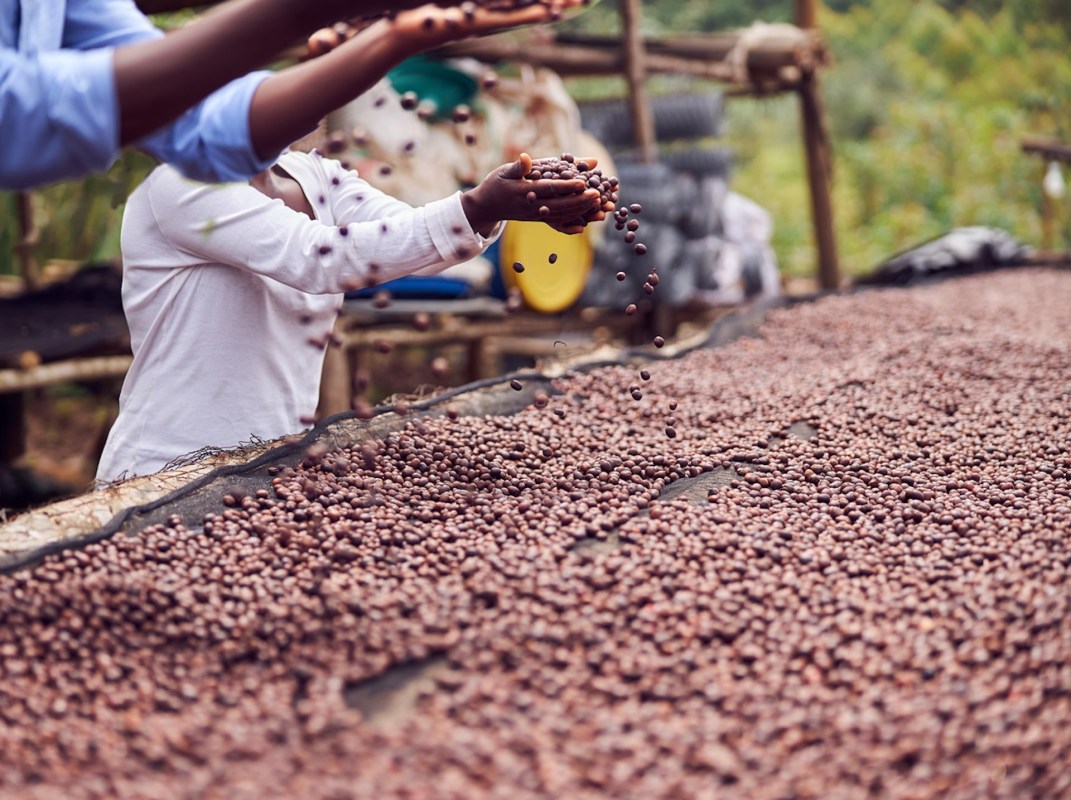Rising global temperatures have had a negative impact on the production of coffee beans, but a French startup focused on developing climate-smart perennial crops is looking to solve that problem.
As explained in AgFunderNews, Amatera has received an investment from an arm of the food and beverage company Paulig to explore the future of coffee.
Amatera was cofounded in May 2022 by CEO Omar Dekkiche and CTO Dr. Lucie Kriegshauser. The company has two plant breeding programs: "Robustica," which is a variety of Robusta without the bitterness, and an Arabica variety that is naturally caffeine-free, AgFunderNews reported.
AgFunder's Ryan Lee declared that Amatera has an accelerated trait discovery and plant breeding platform that "has the potential to develop more climate-resilient crops and go to market more quickly than [companies using] traditional breeding methods."
Both programs rely on plant cell culture, which is the method of growing plant cells in vitro in culture as opposed to growing mature plants in water or soil. The non-GMO breeding platform induces spontaneous genetic variation using physical and chemical approaches without relying on gene editing.
In other words, you could say they're speeding up natural variances and evolution in a lab and selecting the most desirable outcomes from that process, instead of manipulating genes directly and ending up with genetically modified organisms.
"Our approach is based on accelerating the plant's natural evolution at the cellular level, which is an alternative non-GMO route to genome editing," Kriegshauser said in a statement quoted by AgFunderNews. "The technology as such is not new, but applying it to perennial crops such as coffee is, since they are more complicated and require several breakthroughs in cell biology. This is also why gene-editing techniques are struggling. Our technology is a real game-changer and opens up the avenue to applying it on several other crops such as cacao, bananas, and grapes, or even pharmaceutical plants."
The use of GMO technology to combat climate-related concerns has borne fruit — and also vegetables and rice — but as many consumers prefer non-GMO labeling, Amatera's approach could be lucrative.
Unfortunately, it will take quite some time before coffee drinkers can taste Amatera's new varieties.
"We aim to have all our development at a cellular level [in plant cell culture] done by the end of 2024, and then we'll start producing the beans in the field, and that will take at least two years, and so we expect first production by 2027," Dekkiche said in the AgFunderNews article.
Dekkiche added that Amatera is confident its new varieties will have the same yields and performance required to be successful in the coffee industry.
"We know the genes that are responsible for the bitterness or the caffeine, so we are able to be highly selective and we don't see these impacting other aspects of the plants' growth," he said.
Join our free newsletter for cool news and actionable info that makes it easy to help yourself while helping the planet.









